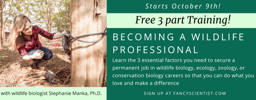Snakebites in lango northern part of Uganda

SNAKE BITE CASES RISE DURING THE LOCKDOWN IN LANGO-SUB REGION.
As the country is putting all efforts on covid19, many people are dying from diseases like snake bites since WHO declared it as a neglected tropical disease.
Snake bites occur when a snake bites the skin. They are medical emergencies if the snake is venomous.
Lango sub region is facing a lot of snake bite cases ever since the lockdown started. This has been due to the flooding of Lake kyoga that a lot of wildlife has found refuge in communities and people’s homes hence the rise of snakebite cases among communities in Lango. Three people in a period of 3 days have lost their lives due to snakebites hence leaving families in despair.
Uganda Snakebite foundation and SS breeding farm Ltd have been contacted on how to solve this problem since there experts in dealing with snakes and other wildlife. As experts we think that communities need a lot of awareness and massive sensitization on the dangers posed by snakes and how to go about them.
People from communities and health personnel need training on how to handle snake bite cases wherever they get them. According to our research from Dr. Tike Mercy winne Chagara who is a resident of Lira district, she says many people are bitten during farming and also as they draw water from the wells .
The recent cases of snake bites which have resulted into deaths are mainly because of un stocked health facilities with the right antivenins or even with anything concerning the treatment hence forcing many people to visit traditional healers who they believe can save their lives. There are cases where these traditional healers treat bites from non-venomous snakes, people because of little or no knowledge at all about snakes believe there traditional herbs work hence the rise of snake bite deaths in Uganda and across Africa.
We advise the government to step up and save its citizens from being in the darkness about the dangers caused by snakes.
Uganda snakebite foundation and SS breeding farm Ltd before the lockdown or the surfacing of covid19 , had done some research on the common venomous snakes found in Lango sub-region and these include puff Adder ( bitis arietans) and Egyptian cobra ( Naja haje),
Boomslang (dispholidus typus), forest vine snake ( Thelotornis kirtlandii) , Forest cobra ( Naja subfulva) . Among the list above many cases got have been from the puff adder according to how the locals described to us.
We also developed a first aid action plan - see below.
First Aid Action Plan
Follow these steps to provide first aid:
1. Keep the person calm. Reassure them that bites can be effectively treated in an emergency room. Restrict movement, and keep the affected area below heart level to reduce the flow of venom.
2. Remove any rings or constricting items, because the affected area may swell. Create a loose splint to help restrict movement of the area.
3. If the area of the bite begins to swell and change color, the snake was probably venomous.
4. Monitor the person's vital signs -- temperature, pulse, rate of breathing, and blood pressure -- if possible. If there are signs of shock (such as paleness), lay the person flat, raise the feet about a foot (30 centimeters), and cover the person with a blanket.
5. Get medical help right away.
6. If possible, make note of the color, shape, and size of the snake. This may help with treatment of the bite. Do not waste time hunting for the snake, and do not trap it or pick it up. If the snake is dead, be careful of the head -- a snake can actually bite (from a reflex) for several hours after it's dead.
With the above put into consideration, we will reduce the cases of snakebites in the country and in our communities at large.
Compiled by
Mukasa Emmanuel
Director -Herp fauna foundation





Please sign in or register for FREE
If you are a registered user on WildHub, please sign in
Let’s join hands to minimize snakebites and save snakes too
Thank you for sharing @MuKasa Emmanuel and great to meet you at our social yesterday!
Perhaps other experts can provide advice on your situation in Uganda based on their lessons learned?
I am thinking of @Rezoana Arefine , @Romulus Whitaker and @Shaleen Attre : any thoughts on the above action plan and situation Emmanuel describes? He also mentioned in our social yesterday that funding for awareness raising is hard to get because it's not prioritised.
Thank you, Thirza, for mentioning me. I will write a post on this topic, which I found while working. I hope it will be helpful for Emmanuel.
I have thoroughly enjoyed reading your post and reviewing your initial action plan.
However, I am uncertain if you face the same issue in your country as we do in Brazil. Here, most people cannot accurately identify the snake that has bitten them. Consequently, we usually advise individuals to take a photograph of the snake if possible or to note key identifying characteristics.
One of my main concerns when working on snakebite education is addressing the misconception that snakes are evil creatures. It is important to convey that snakes should not be killed.
In the past, people who were bitten often killed the snake and brought it to the hospital for identification, which posed additional risks, including the potential for another bite. Hospitals do not always have someone available who can identify the snake.
I strongly agree that there should be comprehensive training for communities on how to respond to snakebites. I hope you succeed in achieving your objectives. I believe that training the community and local authorities in areas with the most bites would help decrease the number of accidents and maybe it could be funded by the government. Start a campaign of sorts.